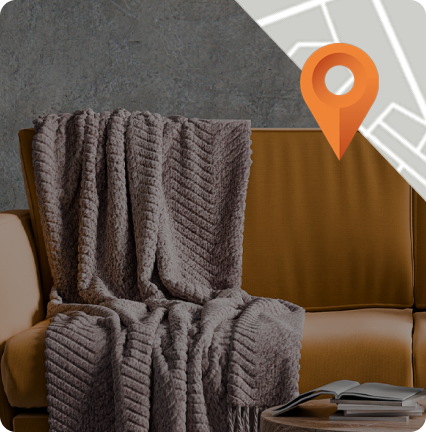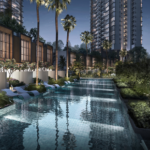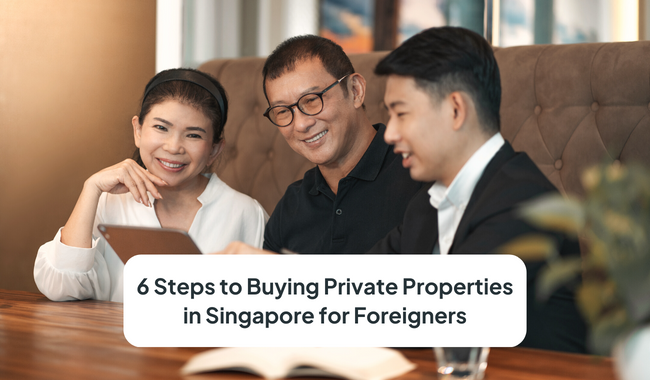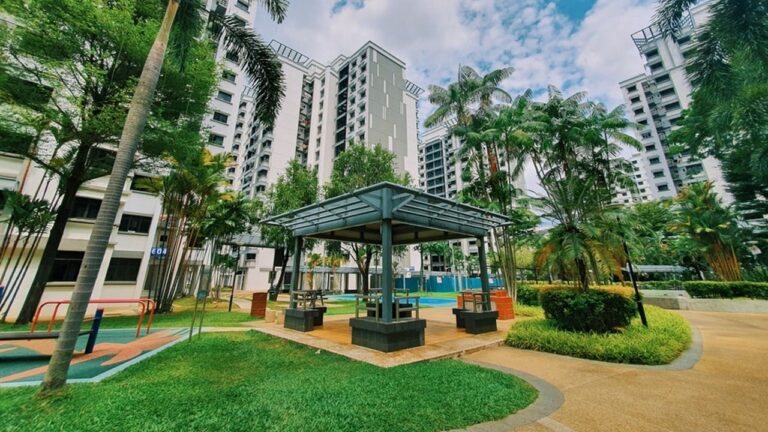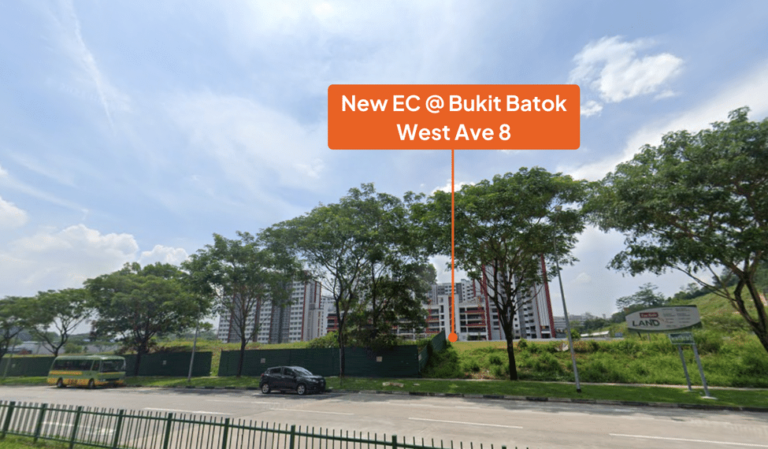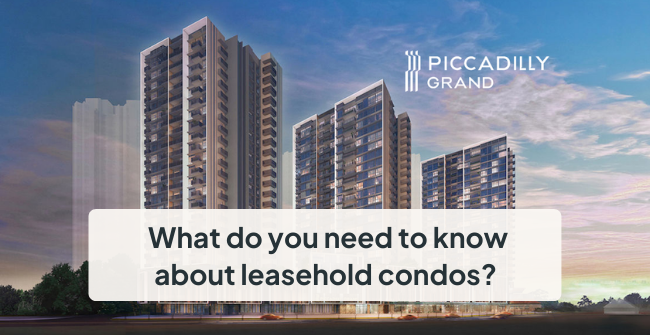This post was originally published in July 2021 and has been updated for accuracy and comprehensiveness.
The Singapore property market is bracing for an increase in demand from mainland Chinese looking to work, live, and potentially buy homes in Singapore as the world’s second-largest economy reopens this 2023. Last month, there has reportedly been a 10-15% increase in inquiries about immigration to Singapore from mainland Chinese after Beijing finally ended tight Covid isolation measures after three years.
Contents:
- What are the types of properties foreigners can buy in Singapore?
- Who is considered a foreign person under the Residential Property Act?
- 6 steps to buying a condo in Singapore for foreigners
- How to engage a property agent to buy a private property
- Looking for an HDB or private property? Here’s how you can speed up your home search
- Frequently asked questions about foreigners buying a condo in Singapore
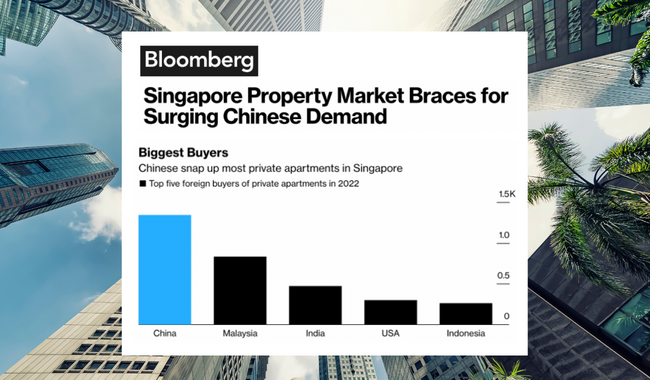
Historically, the mainland Chinese have been the biggest foreign buyers of Singapore’s private properties — from condominiums to landed homes. Analysts say they expect this number to grow even more this year. Those looking to move to Singapore seem undeterred by the 30% Additional Buyer’s Stamp Duty that all foreign buyers have to pay when buying a property in Singapore. (We talk more about this issue right here.)
As we brace for the surge in demand from foreign property buyers, we thought we’d give a definitive guide to buying private property here in Singapore as a foreigner.
What are the types of properties foreigners can buy in Singapore?
In Singapore, foreign persons can purchase a condominium unit without approval under the Residential Property Act.
According to the Singapore Land Authority, this group can also buy such property types as:
- a strata landed house in an approved condominium development;
- a leasehold estate in a landed residential property for a term not exceeding 7 years, including any further term which may be granted by way of an option for renewal;
- an executive condominium unit, an HDB flat and HDB shophouse, among others. (For HDB eligibility guidelines, more information is here or email HDB at hdbsales@mailbox.hdb.gov.sg.)
To those foreign buyers considering the purchase of a private condo in Singapore at this time, we’ve broken down the process for ease of understanding and to introduce some of the property-related duties associated with buying this type of property.
Who is considered a foreign person under the Residential Property Act?
Anyone who is not a Singapore citizen, a Singapore company, a Singapore limited liability partnership or a Singapore society is considered a ‘foreigner’ in Singapore. Given such, even SPRs are considered foreigners.
| What Singapore PRs can buy | What non-Singapore PRs can buy |
| Resale HDB flats (with another Singapore PR or Singaporean) | Private condos |
| Resale ECs that have reached their 5-year MOP | Private ECs |
| Privatised ECs | Landed properties in Sentosa Cove |
| Private condos | Landed properties (with special permission from Singapore Land Authority) |
| Strata-landed homes | – |
| Landed properties in Sentosa Cove | – |
| Landed properties (with special permission from Singapore Land Authority | – |
6 steps to buying a condo in Singapore for foreigners
#1: Double-check the affordability of the property
Before jumping into the buyers’ pool, double-check how much you can comfortably afford. Our home loan calculator can estimate your maximum home loan amount and the property purchase price you can afford based on income, age and existing loan commitments.
Also, consider how long you intend to hold on to the property as the Inland Revenue Authority of Singapore (IRAS) levies a 4-12% Seller’s Stamp Duty (SSD) to those who sell their property within the first three years of purchase.
#2: Consider the stamp duties to be paid
Buyer’s Stamp Duty
Foreigners can expect to shell out money for the Buyer’s Stamp Duty (BSD), which is tax paid on documents signed when you buy or acquire property in Singapore, regardless of nationality.
Here are the BSD rates after the 2018 Budget changes:
| Purchase Price or Market Value of the Property | BSD Rates for Residential Properties |
| On the first $180,000 | 1% |
| On the next $180,000 | 2% |
| Next $640,000 | 3% |
| Remaining Amount | 4% |
Additional Buyers Stamp Duty
On top of that, foreigners are also required to pay the Additional Buyers Stamp Duty (ABSD) of 30% when buying any residential property.
But unlike the BSD, the ABSD applies only to residential property.
Here’s how the ABSD is calculated:
| Profile of Buyer | Rates on or after Dec 16, 2021 | |
| Foreigners | Any property | 30% |
| Singapore Permanent Residents (SPR)* | First property Second property Third property | 5% 25% 30% |
ABSD exemptions apply to those who are a citizen or permanent resident of countries under certain free trade agreements, such as Iceland, Lichtenstein, Norway, Switzerland and the USA (citizens only).
Other fees payable are for legal services and registration fees, as well as the property agent’s commission (if applicable).
#3: Applying for a bank loan
Foreign persons may approach any bank in Singapore for a home loan, but the amount they can borrow varies depending on the number of outstanding housing loans he/she has.

Loan-to-Value (LTV) limits for foreigners:
The LTV limit determines the maximum amount an individual can borrow from a financial institution (FI) for a housing loan. The LTV refers to the loan amount as a percentage of the property’s value.
For loans on residential properties where the Option to Purchase (OTP) – which is a legal agreement between the buyer and seller to buy a residential property – is granted on or after 6 July 2018, the following LTV limits apply:
| Outstanding Housing loans | LTV Limit | Minimum Cash Down Payment |
| None | 75% or 55%* | 5% (for LTV of 75%)10% (for LTV of 55%) |
| 1 | 45% or 25%* | 25% |
| 2 or more | 35% or 15%* | 25% |
*Apply the lower LTV limit if the loan tenure exceeds 30 years or the loan period extends beyond the borrower’s age of 65 years.
Here’s a sample computation for a property worth $2 million.
| Purchase Price ($2,000,000) | Cash Outlay for Foreign Buyer (Non-SPR) |
| Buyer’s Stamp Duty | $24,600 + $40,000 = $64,600 |
| Additional Buyer’s Stamp Duty | $2,000,000 x 20% = $400,000 |
| 75% Bank Loan, 25% Cash Outlay | $2,000,0000 x 25% = $500,000 |
| 50% Bank Loan, 50% Cash Outlay | $2,000,0000 x 50% = $1,000,000 |
| Total Cash outlay with 75% Bank Loan | $64,600 + $400,000 + $500,000 = $964,600 |
| Total Cash outlay with 50% Bank Loan | $64,600 + $400,000 + $1,000,000 = $1,464,600 |
#4: Buying on your own or engaging an agent?
When your finances are in order, it’s time to decide whether you will be engaging a property agent to buy your unit or doing it yourself (DIY). Some buyers choose the latter to save on agent’s commission, but many still prefer shouldering this cost for the services of a property agent.
How to DIY
For listings, the best place to look is the local property portals which will have the available properties for sale sorted according to location, price, amenities, configuration and the like.
Ohmyhome is one such portal – it’s free and has a mobile application that allows a prospective buyer to chat directly with sellers.

How to engage a property agent to buy a private property
You can simply call the hotline of a property agency to enquire about engaging one of their agents or go to the Council of Estate Agents’ (CEA) website. Their Public Register lists all the licensed property agencies and registered agents.
The difference between an estate agent and a salesperson
| Estate Agent (a.k.a. property agency) | Estate agency businesses (sole proprietors, partnerships and companies) who do estate agency work. Estate agents are commonly known as property agencies. |
| Salesperson (a.k.a. property agent) | Individuals who perform estate agency work. They are commonly known as property agents. |
Before engaging either, make sure to check CEA’s Register for the validity period of an estate agent’s license or a salesperson’s registration against the name of the estate agent or salesperson. This information is updated daily.
#5: Hiring a local property lawyer
When buying property in Singapore, it’s important to hire a qualified lawyer from your bank’s panel list. He or she will assist with contracts, perform searches to confirm details of the property and its ownership and make sure the property won’t imminently be affected by any major infrastructure projects.
The lawyer will also be responsible for due diligence checks on the seller (for resale condos) and liaise directly with the developer’s solicitor to ensure everything’s above board.
#6: Securing the property
To secure your dream condo, you will have to sign the OTP. But before you do so, make sure you have your bank’s In-Principle Approval (IPA), which is essentially their promise to extend you the home loan you need for your property purchase. An IPA is typically valid for up to two weeks.

When you have the IPA, you know exactly how much the bank has pledged to lend you and can be confident that you have sufficient funds when signing the OTP. Signing without the IPA can prove to be a costly mistake in the event that the bank doesn’t extend the full amount you need, leaving you unable to meet the schedule of payments for your home and ultimately losing your option fee.
The option fee is a sum of money, typically 1-5 per cent of the purchase price, that a buyer pays the seller based on an Option to Purchase. The sum is to “reserve” the property for an agreed period of time while the buyer considers the possible purchase. If the buyer doesn’t exercise this option to purchase within the given time period for whatever reason (failure to get a bank loan, change of heart, etc), he or she will forfeit this option fee.
Looking for an HDB or private property? Here’s how you can speed up your home search

Let Ohmyhome’s smart data-matching technology MATCH you with the right home, according to your specific needs. Submit your preferences to us and our algorithm will filter all our available listings based on those, and we’ll WhatsApp them to you once we find a match. We’ll also send you relevant content that you can use for your research and inform your home buying decision, so you no longer have to spend hours searching online for the information that you need.
You can also drop us a message on WhatsApp us to secure an appointment with any of our Super Agents or message us via our Live Chat at the bottom, right-hand corner of the screen.
Frequently asked questions about foreigners buying a condo in Singapore
Who’s considered a foreigner in Singapore?
Anyone who is not a Singapore citizen, a Singapore company, a Singapore limited liability partnership or a Singapore society is considered a ‘foreigner’ in Singapore. Singapore Permanent Residents (SPRs) are foreigners but they do pay a different rate for Additional Buyers Stamp Duty compared to foreigners with no permanent residence in Singapore.
Can a foreigner buy a condo in Singapore?
Under the Residential Property Act (Chapter 274) of the Singapore Law, foreigners are eligible to buy a condo in Singapore.
Can foreigners buy an executive condo?
Yes, foreigners can buy an executive condo (EC) in Singapore. For HDB eligibility guidelines, more information is here or email HDB at hdbsales@mailbox.hdb.gov.sg.





